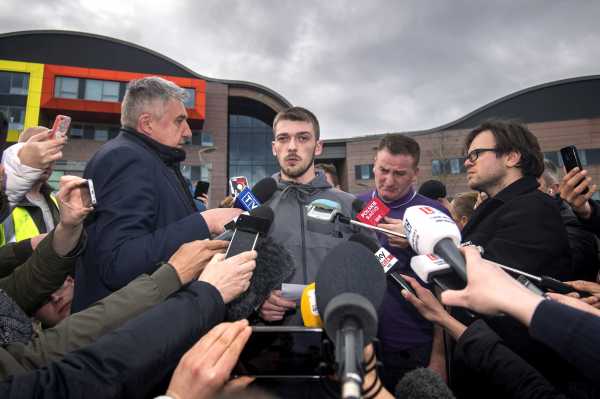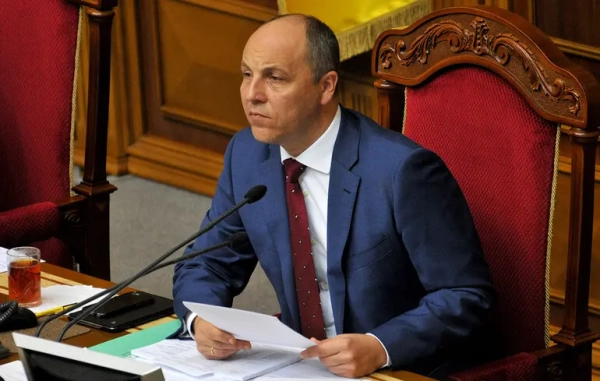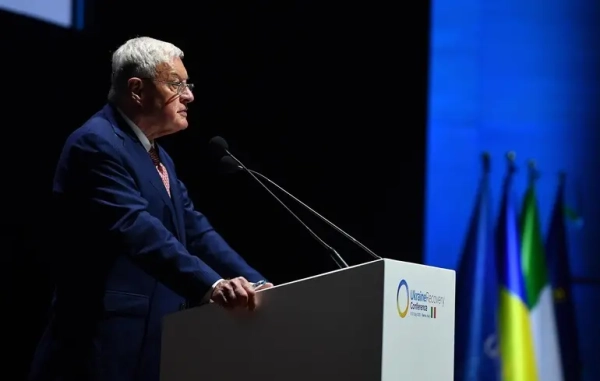
Alfie Evans is a 2-year-old Brit with a degenerative and terminal brain condition — medical experts liken it to dementia experienced by elderly people. He is said to be in a semi-vegetative state.
His doctors in the UK believe it is time to discontinue treatment because they say his situation is terminal and further treatment would only prolong his suffering. His family wants to move Alfie to an Italian hospital for further treatment, holding onto hope that there has been a misdiagnosis, a move the British doctors concluded would be harmful while offering no chance for a better outcome for the child.
The result has been a legal battle, with the doctors and hospital asking the courts to uphold their medical judgment. They have, which has led the Evans family to appeal those rulings to higher courts. On Wednesday, the UK Court of Appeal sided with the doctors and hospital once again.
It is an example of the most difficult situation in health care: what to do when the best medical opinions decide that a situation is hopeless, and yet the patient or their family won’t give up. I won’t pretend there are any easy or satisfying answers here.
But how do we get to that situation in the first place, with doctors and parents squaring off in court? Is it — as some conservatives in the US are suggesting — the result of Britain’s nationalized health care sector?
For starters, this is very unusual: “In almost all cases, decisions are made by parents with health professionals, with the best interests of the child in the front of their minds,” Dominic Wilkinson, a Jesus College at Oxford University professor who specializes in newborn intensive care and medical ethics, told me. “It’s very rare that it comes to the court.”
Typically, if the family and their doctors disagree about a treatment or prognosis, they will take time to try to understand each other’s views. The doctors might order more tests or the family might seek a second or third opinion. It is possible, though rare, that another hospital could have a different opinion on the case, and the patient could be moved there.
Sometimes the two sides do end up at an impasse, as the Evans family and their doctors seem to have, and their relationship breaks down. In that case, doctors who feel that continuing care conflicts with their ethical obligation to do no harm can ask a court to intercede.
”If the professionals feel what the parents are asking is contrary to their professional obligation to safeguard the child, they have an ethical and legal duty to refer the case to the court,” Wilkinson said by phone. “They did everything in their power to try to reach agreement. They only went to the courts when they had exhausted all other options.”
So why not let a family, even in a hopeless situation, take their terminally ill child to Italy if they believe they might find better care there? This was Wilkinson’s response, an opinion that seems to be shared by Alfie’s doctors and the UK courts.
Evans’s case has been used by Republicans in the US as an illustration of what they see as the perils of a nationalized health care system, like the one in the UK. ”It is a grim reminder that systems of socialized medicine like the NHS vest the state with power over human lives, transforming citizens into subjects,” Sen. Ted Cruz (R-TX) said in a statement.
But this is not a situation that arises only in a government-run system like the UK. It can happen right here in the United States, and it has very recently.
Just last year, in fact, there was a lawsuit in Texas over a state law that allows doctors to withdraw treatment against the wishes of the family if they decide further medical care is futile. You can find other similar cases from Connecticut and Tennessee in this roundup from Thaddeus Pope, a Mitchell Hamline professor who studies end-of-life ethics issues. There was also the famous case of Baby K in the 1990s. Other times, as in the Terri Schiavo case, different members of her family took different sides in the debate over whether to continue care.
”The type of reimbursement or the source of reimbursement doesn’t seem to have a lot to do with these conflicts,” Pope told me, noting that these situations arise in the UK, Canada, Australia, France, and the United States. “There are wildly different payment systems in these countries.”
”I don’t think Alfie has anything to do with money. These are licensed health professionals and they just think it is wrong or torture or cruel to provide the treatment that the parents are asking for,” Pope added. “The norms of medical professionals are the same across the world.”
Families and doctors can disagree about the best treatment plan under any health care regime. That is simply the nature of medicine. Wilkinson did say there is a budding debate in the UK about a better mediation plan for times when doctors and families disagree to avoid having it fought out in the courts.
With that, we wish the best to Alfie’s family and the others who find themselves under these circumstances. Long meditations on the ethical quandaries that their situation presents surely do little to alleviate their pain.
vox-mark
VoxCare
Subscribe
By signing up, you agree to our Privacy Policy and European users agree to the data transfer policy.
For more newsletters, check out our newsletters page.
This story appears in VoxCare, a newsletter from Vox on the latest twists and turns in America’s health care debate. Sign up to get VoxCare in your inbox along with more health care stats and news.
Sourse: vox.com






